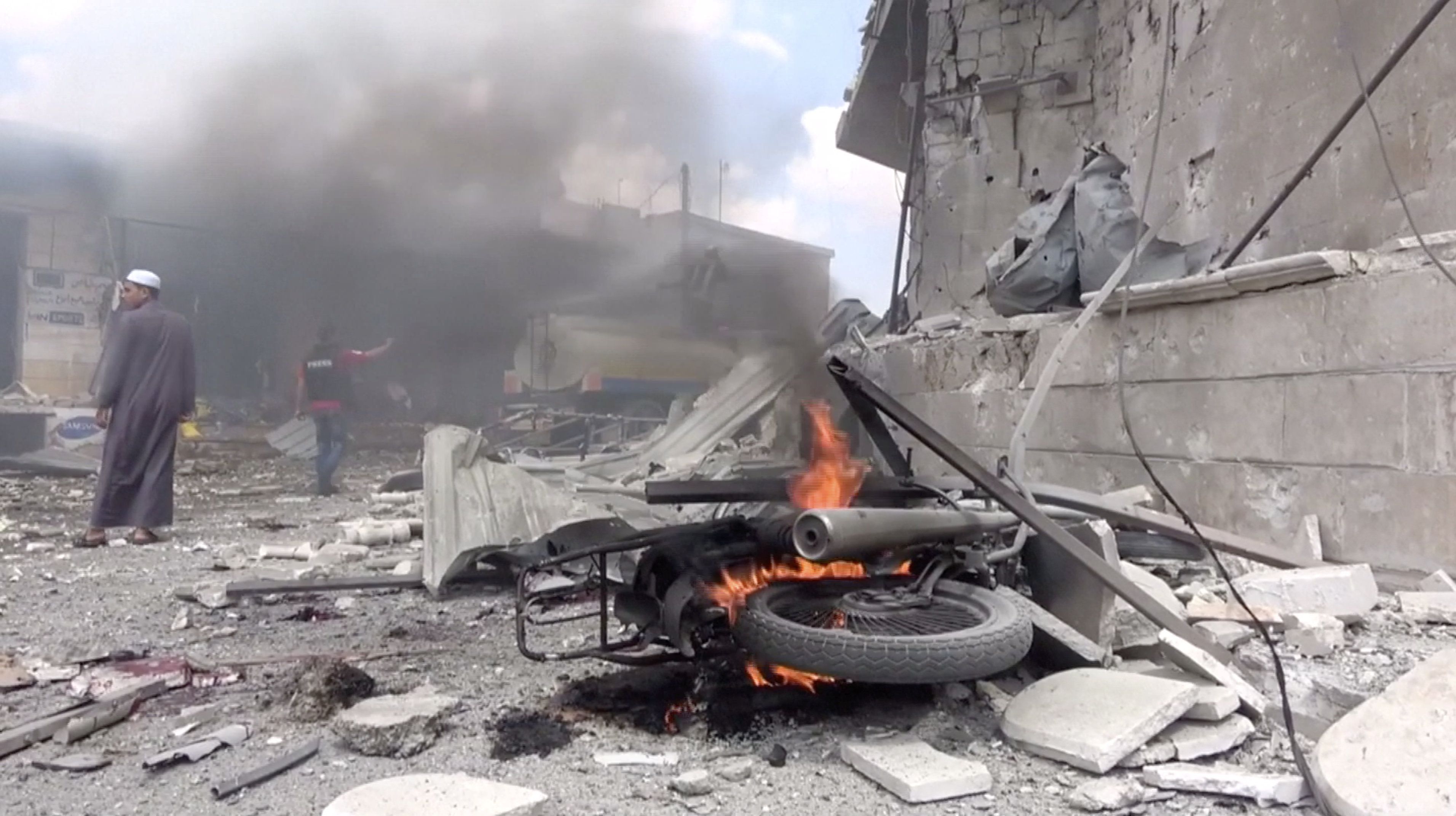July 29, 2019
Syria's overlooked killings – In the past 10 days, Syria's military, backed by Russia, has killed more than 100 Syrian civilians, including 26 children, according to the UN. We've written before about Idlib province, which is supposed to be protected from attack by a 10-month old truce brokered by Russia and Turkey. That agreement spared the province's 2.7 million civilians an all-out government attack. But Bashar al-Assad's military has relied on strikes that kill smaller numbers over time to avoid international condemnation, and that strategy appears to be working. In three months, government attacks have forced 330,000 from their homes, and the story has gone largely unreported. For a look at what the Assad family shares in common with The Godfather's Corleones, check out the latest from Ian Bremmer here.
New promises, and fears, over South African land – Whites make up less than 10 percent of South Africa's population, but 25 years from the end of apartheid, they still own nearly three-quarters of the country's individually-owned farmland. President Cyril Ramaphosa faces pressure to address this disparity. He doesn't want to damage South Africa's economy by throwing property rights into question, but he faces intense criticism that he favors big business over small farmers. This week, a presidential panel proposed expropriation of land without compensation—but only for land that's rented out or held as investment property. For more on South Africa, click here.
Kenya's all-female biker gangs: Throttle Queens. Piki Dada. Inked Sisterhood. Heels of Steel. We're watching these all-female biker gangs cruising through Kenya, a socially conservative country, because the photos show that they're impossibly cool. They've taken their share of criticism but, says a member of Inked Sisterhood, if you're a woman who wants to join, "there is a community here waiting to learn with you, grow with you, ride with you."
What We're Ignoring:
A Greek smoking ban - Nine years, 10 months, and 27 days ago, Greek lawmakers voted to ban smoking in all public places. With the arrival of new Prime Minister Kyriakos Mitsotakis, it has been announced that the nearly decade-old ban will now be enforced inside the parliament building itself. Ashtrays have been removed from hallways. We can now ignore this story, because we're sure that lawmakers—to say nothing of patrons in bars, clubs, and restaurants—in the heaviest smoking country in the EU will now fully abide by the rules. Definitely.
More For You
Most Popular
- YouTube
In this Quick Take, Ian Bremmer reacts to President Trump’s State of the Union address, calling it “a rehashing of the greatest hits” with little new policy direction.
Small business hiring surged 7% above the 2024 average in December, led by a surprise rally in retail. But with uncertainty still historically high and mounting concerns over tariffs, can this momentum survive 2026? Explore the data behind the resilience of the US small business sector. Get the latest economic insights from Bank of America Institute.
© 2025 GZERO Media. All Rights Reserved | A Eurasia Group media company.
